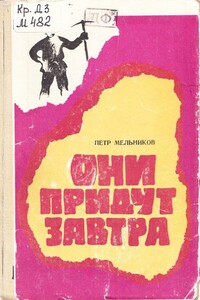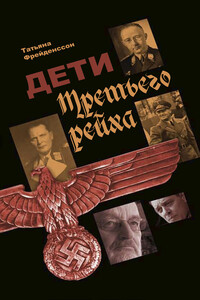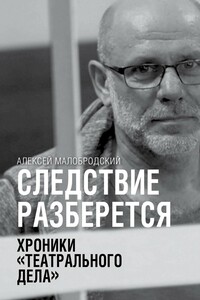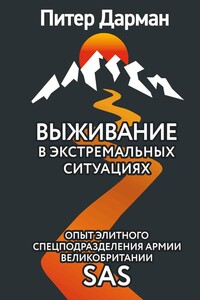The Boy Scouts In Russia - [7]
And so, trying to ignore the little crowd that was following him, he turned off and began climbing toward the mansion above the village.
It was like a signal. From behind him there rose a dull murmur. A lad not much older than himself raced up and stood threateningly in his path.
"If you are an American and honest, why are you going there?" asked this boy, a peasant, and rather stupid in his appearance.
"None of your business!" said Fred, aroused. He didn't think that the advice of his friend Lieutenant Ernst to answer questions covered this.
"You can't go there. There are spies enough there already!" cried the other.
And then without any warning, he lunged forward and tried to grapple with Fred.
That aroused all the primitive fight in Fred. He met the attack joyously for wrestling was something he understood very well. And in a moment he had pinned the peasant boy, strong as he was, to the earth.
But he had got rid of one opponent only to have a dozen others spring up. There was a throng about him as he shook himself free, a throng that closed in, shouting, cursing. For a moment things looked serious. Fred now understood these people thought he was a spy. And he could guess that it would go hard with him if he didn't get away. He forgot everything but that, and he fought hard and well to make good his escape. But they were too many for him. Try as he would, he couldn't get clear, although he put up a fight that must have been a tremendous surprise to his assailants. In the end, though, they got him down, with cries of triumph.
And then there came a sudden diversion from outside the mob. Down the road from the great house, shrieking a warning, came a flying motor car. Its siren sounded quick, angry blasts, and the mob, terrified, broke and scattered to get out of the way of the car. Fred, stupefied, didn't run. He had to jump quickly to one side to get out of the car's path. Then he saw that it was slowing down, and that it was driven by a boy of his own age. This boy leaned toward him.
"I'm going to turn and go back. Jump aboard as I come by-I won't be going very fast!" he cried.
Fred didn't stop to argue or to wonder why this stranger had come to his aid in such a sensational and timely fashion. Instead, he gathered himself together and, as the car swung about and passed him, leaped in. As he grasped the seat, the driver shot the car forward and it went roaring up the hill, pursued by a chorus of angry cries from the crowd, utterly balked of its prey.
"That was a close call for you!" said the driver, in German.
But something in his tone made Fred look at him sharply. And then part of the mystery was solved. For the driver was not a German at all, but plainly and unmistakably a Russian.
"Yes-but how-why-?"
"Wait! Don't talk now!" said the driver. "Wait till we're inside. We'll be all right there, and I've got a few questions I'd like to ask, too."
There was no more danger from the mob of villagers, however. The speed of the car, even on the steep grade, was too great to give pursuers on foot a chance, and so its driver was able, in a few moments, to drive it through great open gates into a huge courtyard.
"Now who are you?" he asked. "And why were those people attacking you?"
"They thought I was English," said Fred. "I suppose England must have declared war on Germany, too."
"She has. Aren't you English, then?"
"No, I'm American. My name's Fred Waring. You're a Russian, aren't you?"
"Yes. My name's Boris Suvaroff. This is a summer place my father owns here. He's away. I'm glad of that, because the Germans would have taken him prisoner if he'd been here."
For just a moment neither seemed to catch the other's name. Then the Russian boy spoke.
"Fred Waring-an American?" he said. "I-is it possible? I've got a cousin called Waring in America! My father's first cousin married an American of that name years and years ago."
"She was a Suvaroff-my mother," said Fred, but he spoke stiffly. "Her family here disowned her-"
"Some of them-only some of them," said Boris. "Are you really my cousin? My father wrote to your mother long ago-but he got no answer! He has often told me of her. He was very fond of her! Are you really my cousin?"
"I guess I am!" said Fred. "I'm glad to know that some of you will own me! My uncle Mikail had me arrested when I went to see him in Petersburg!"
And then while they learned about one another, the two of them forgot the war and the danger in which they stood. CHAPTER IV
"So you have seen Mikail Suvaroff!" said Boris. He shook his head. "We have seen little of him in the last few years. He and my father do not agree. Mikail is on the side of the men about the Czar who want no changes, who want to see the people crushed and kept down. My father wants a new Russia, with all the people happier and stronger."
"Then I should think they wouldn't agree," said Fred, heartily. "Mikail is like the Russians one reads about, dark and mysterious, and always sending people to Siberia and that sort of thing."
"It isn't as bad as that, of course," said Boris, with a laugh. "Russia isn't like other countries, but we're not such barbarians as some people try to make out. Still, of course, there are a lot of things that ought to be changed. Russia has been apart from the rest of the world because she's so big and independent. That's why there are two parties, the conservatives and the liberals. My father is all for the Czar, but he wants the Czar to govern through the men the people elect to the Duma. After this war-well, we shall see! There will be many changes, I think. You see, this time it is all Russia that fights. Against Japan we were not united. It is the Russian people who have made this war."

В книге рассказывается история главного героя, который сталкивается с различными проблемами и препятствиями на протяжении всего своего путешествия. По пути он встречает множество второстепенных персонажей, которые играют важные роли в истории. Благодаря опыту главного героя книга исследует такие темы, как любовь, потеря, надежда и стойкость. По мере того, как главный герой преодолевает свои трудности, он усваивает ценные уроки жизни и растет как личность.

Это суровое документальное повествование не предназначено для легкого чтения. В нем любознательный читатель найдет для себя немало поучительного, узнает о том, как бывшие красногвардейцы, партизаны и чекисты, во главе с коммунистом В. П. Бертиным, при активном содействии обкома партии и правительства молодой Якутской республики, еще при жизни В. И. Ленина, открывали и осваивали золотоносные месторождения на Алдане, и как самые закаленные и упорные из них в составе первой Верхнеколымской геологоразведочной экспедиции высадились на берег Охотского моря и открыли золотую Колыму. Читатель узнает также о том, как старатели и якуты-проводники помогли Ю. А. Билибину, С. Д. Раковскому и П. М. Шумилову найти в жизни более верную дорогу, чем у их отцов, и стать патриотами своей социалистической Родины, лауреатами Государственной премии. Эта книга — о повседневном будничном героизме советских геологов и золотоискателей.

Герои этой книги – потомки нацистских преступников. За три года журналист Татьяна Фрейденссон исколесила почти полмира – Германия, Швейцария, Дания, США, Южная Америка. Их надо было не только найти, их надо было уговорить рассказать о своих печально известных предках, собственной жизни и тяжком грузе наследия – грузе, с которым, многие из них не могут примириться и по сей день. В этой книге – не просто удивительные откровения родственников Геринга, Гиммлера, Шпеера, Хёсса, Роммеля и других – в домашних интерьерах и без цензуры.

В книге рассказывается история главного героя, который сталкивается с различными проблемами и препятствиями на протяжении всего своего путешествия. По пути он встречает множество второстепенных персонажей, которые играют важные роли в истории. Благодаря опыту главного героя книга исследует такие темы, как любовь, потеря, надежда и стойкость. По мере того, как главный герой преодолевает свои трудности, он усваивает ценные уроки жизни и растет как личность.

Автор, один из фигурантов громкого «театрального дела» режиссёра Кирилла Серебренникова, рассказывает историю своего «сопротивления». Книга эта – одновременно и триллер, и крутой детектив, и готический роман ужасов, это и жесткий памфлет, и автобиография. Но как бы ни определить её жанр, это повествование о стойкости, верности убеждениям и своему делу.

«Чтобы выжить, вам необходимо овладеть искусством выживания, особенно психологическим его аспектом, поскольку от этого в конечном счете и зависит, останетесь вы в живых или погибнете», — говорит Питер Дарман. В его книге «Выживание в экстремальных ситуациях» собран опыт элитных подразделений, таких как SAS и «Морские котики» США. В основе выживания лежат самые простые вещи: правильное использование одежды, инструментов, подсобных предметов и, главное, ваша психологическая готовность. Автор рассказывает о том, как выжить в различных нештатных ситуациях: в пустыне, тайге, джунглях, на Крайнем Севере.